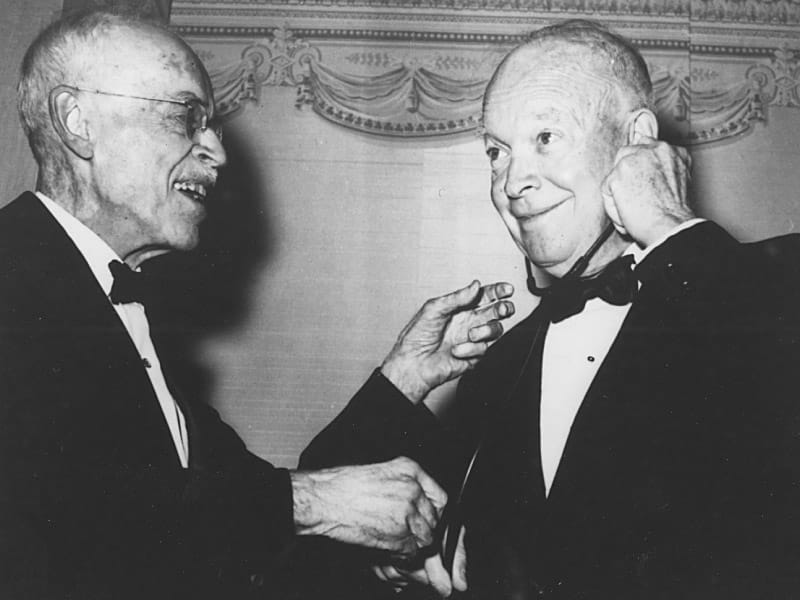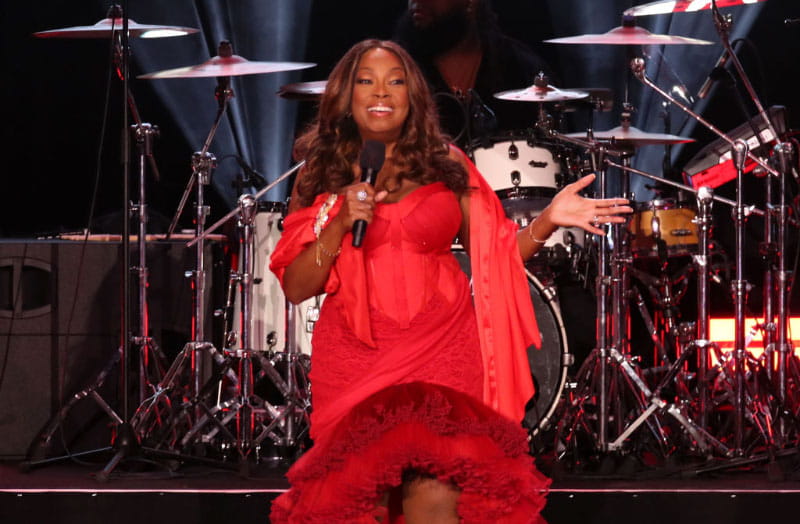Celebrities can spark change when they speak up about their health
By Deborah Lynn Blumberg, American Heart Association News

One day, when actor and comedian Rosie O'Donnell was in her 50s, her body ached and her arms felt sore, but she pushed through the pain, not realizing she was having a massive heart attack. She had surgery to put in a stent that saved her life.
Shortly after her 2012 heart attack, O'Donnell shared her experience on her blog. During her 2015 television standup special, she spoke about how the experience changed her life. The segment included a heart attack acronym the comedian coined: HEPPP (hot, exhausted, pain, pale, puke).
O'Donnell's candidness about her heart attack helped spread awareness about how it can present differently in women. She's one of countless celebrities over the years who have opened up about their health conditions, including breast cancer, HIV, depression, heart disease and stroke. When celebrities reveal and discuss their health issues, the impact can be far-reaching. It not only helps to educate the public, but it also can reduce stigma and inspire others.
"Health disclosures by celebrities do matter, and we know this from decades of research across a lot of different health conditions and public figures," said Dr. Jessica Gall Myrick, a professor of health communication at Pennsylvania State University in University Park. "They absolutely do influence people."
Some of the earliest celebrity health disclosures happened in the 1970s and 1980s with U.S. presidents and first ladies. When first lady Betty Ford was diagnosed with breast cancer just weeks after Gerald Ford became president in 1974, she spoke openly about her diagnosis, inviting photographers into the White House and helping make talk of cancer less taboo. In 1987, first lady Nancy Reagan used her breast cancer diagnosis as a chance to advocate for women to get mammograms. Her disclosure came two years after President Ronald Reagan's colon cancer diagnosis, about which the couple was equally as vocal.
"Individuals throughout the country have been calling cancer physicians and information services in record numbers," the Los Angeles Times reported after Nancy Reagan's widely publicized surgery. The public showed a similar interest years earlier following Betty Ford's mastectomy.
Another major milestone in celebrity health disclosures came in 1991, when 32-year-old NBA superstar Earvin "Magic" Johnson revealed he had tested positive for HIV, the virus that causes AIDS. "Life is going to go on for me, and I'm going to be a happy man," Johnson assured fans during a news conference. He immediately retired, only to return to the Los Angeles Lakers in 1996. His disclosure, along with his work as an advocate for safe sex, helped shatter stigmas around HIV and AIDS.
Calls to testing centers increased significantly in the days and weeks after Johnson's announcement. "That celebrity disclosure really helped people see there was a wider susceptibly to HIV," Gall Myrick said. "People were more likely to say, 'I need to think about my own risks.' It was very powerful."
When it comes to heart and stroke health, President Dwight Eisenhower helped make heart attacks less frightening and mysterious. During a news conference in 1955, millions of Americans learned from the president's doctors about his heart condition, his treatment, and concrete steps they could take to reduce their own heart attack risk.

Other notable figures have shared their health experiences over the years. Soap opera legend Susan Lucci, who was diagnosed with heart disease in 2018, has advocated for women's heart health. Basketball great Kareem Abdul Jabbar talks about his irregular heartbeat, known as atrial fibrillation, and advocates for regular health screenings. Lawyer, author and television personality Star Jones continues to speak about heart disease risk after having lifesaving heart surgery in 2010. Longtime TV and radio personality Dick Clark brought stroke and aphasia into the national spotlight when he returned to hosting "New Year's Rockin' Eve" in Times Square just a year after his 2004 stroke and continued until his death in 2012. And actor and comedian Jamie Foxx recently revealed he had a stroke last year.
"Celebrity disclosures represent teachable moments," said Dr. Seth M. Noar, director of the Communicating for Health Impact Lab at the University of North Carolina in Chapel Hill. "Searches for different health conditions often spike in the wake of these types of announcements. They cause people to think about these health issues, learn more about them, and in some cases change their behaviors."
Celebrities have also highlighted the importance of CPR and the use of an automated external defibrillator, or AED, to restore a person's heartbeat if they experience cardiac arrest.
Interest in CPR and AEDs spiked in 2023 after Buffalo Bills safety Damar Hamlin went into cardiac arrest during an NFL game broadcast on national TV. Views of the American Heart Association's hands-only CPR pages jumped more than 600% in the days following Hamlin's cardiac arrest. Three months later, around 3 million people had watched the AHA's CPR video.
Family members of celebrities who have died from a heart issue have also spread awareness. After actor John Ritter died of an undiagnosed aortic dissection in 2003, his wife, actor Amy Yasbeck, started the Ritter Foundation to raise awareness about the condition and help others avoid a misdiagnosis.
A literature review published in Systematic Reviews in 2017 found that people are conditioned to react positively to celebrity advice. Research also has found that people often follow advice from celebrities who match how they perceive – or how they want to perceive – themselves. The most effective celebrity disclosures are frequently the ones that tell a compelling story and include clear steps people can take to apply lessons the celebrity learned to their own health situation, Gall Myrick said. "People are more likely to take action when they feel confident and capable."

Research has shown that celebrity disclosures often impact calls to hotlines and page views on health-related websites, and they can spark behavioral and even policy changes. Anecdotally, Gall Myrick said, people ask their doctor more questions about health conditions and request medical screenings.
Celebrities can have a big impact because people tend to have parasocial relationships with them, Gall Myrick said. These are one-sided relationships in which a person feels an emotional connection with another person, often a celebrity. People may feel as if they know the basketball player they've watched on the court for years, or the Hollywood actor they've followed, she said. They want to comfort them after a health disclosure.
Social media has only increased this feeling of familiarity, as celebrities regularly share mundane – but fascinating – details of their daily lives, like what they eat for breakfast, their favorite socks, or the meditation they do before bed.
"We spend a lifetime being exposed to celebrities through the media, and over time, you get to know these public figures," Gall Myrick said. "Some feel like friendships."

A study published in the journal Science Communication in 2020 compared reactions to actor Tom Hanks, who had COVID-19 early in the pandemic, and an average person with COVID-19. Researchers found that participants identified more with Hanks when it came to estimating their own susceptibility to COVID-19. The participants also felt more emotional about the virus that causes COVID-19 when thinking about it in relation to Hanks versus an average person.
When a celebrity reveals a health condition, it's a surprise that may feel personal, especially if they are well-liked and the health issue is dramatic and sudden. "We feel like we know them, and the emotional response is what can then push people out of their routine," Gall Myrick said.
Noar said a celebrity health story is often a more interesting and powerful way to learn about a health condition than just the facts, which can feel overwhelming. People are drawn to the slew of media coverage that typically follows a celebrity disclosure, he said.
"Some of these high-visibility public figures' stories are now woven into some of these illnesses," Noar said. For example, Angelina Jolie is often linked to the BRCA1 gene mutation after the actor shared she had a preventive double mastectomy because of her elevated breast cancer risk and had her ovaries and fallopian tubes removed because of her increased risk for ovarian cancer.
"It's a narrative, a story that humanizes the condition in a way that very informational communication really doesn't," Noar said. "People remember it, and it can potentially be a touch point." After a disclosure, patients may bring up a celebrity's story during a doctor's appointment and connect it to their own care.

Today's multiplatform digital culture only amplifies celebrity messages. "You're seeing everyday people react to these events, and that can have a ripple effect too," Gall Myrick said. "We know from research that seeing messages more than once can be impactful. Often it's not just one billboard or one commercial that impacts behavior; it's the drip drip drip over time."
Still, there's a cautionary tale to be told around the impact of celebrity health news, especially if the celebrity has died. An unclear cause of death may lead to speculation. Gall Myrick said that guesswork could potentially end up hurting rather than helping if patients were to act on misinformation or a lack of information.
"Maybe the death was atypical or it needs more context," she said. "That's where advocacy groups and public health organizations come in. They need to be prepared for announcements or disclosures about celebrity deaths, and to fill in some of those gaps."





